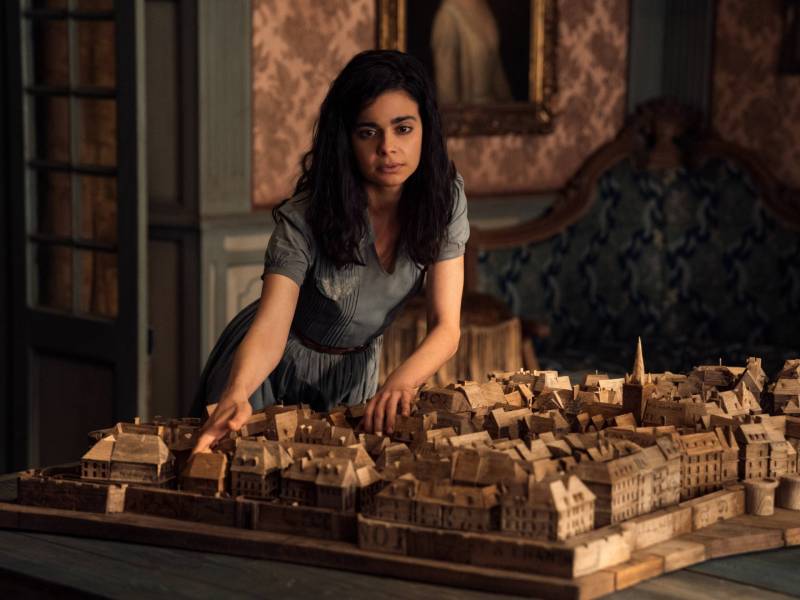At a time when so much of what we see on television is devoted to ongoing coverage of war, you may not want to seek out a scripted drama about war — even long-ago World War II, and even a story based on Anthony Doerr’s very popular novel. But All the Light We Cannot See, the new four-hour Netflix miniseries, is worthwhile and heartening. In the midst of the darkness and horror of war, the “Light” in the title refers to hope.
'All the Light We Cannot See' Is a Heartening and Hopeful Wartime Tale

All the Light We Cannot See is told in several different time periods, and from several different perspectives — all leading to a climax in which everything somehow comes together. The main characters are two young children — a French girl named Marie-Laure and a German boy named Werner. He’s a tinkerer who becomes adept at building and repairing all types of radios. She’s blind, and is equally fascinated by the radio because she listens nightly to a shortwave broadcast, aimed at kids, hosted by a mysterious ham operator who calls himself the Professor.
In Paris, Marie-Laure is inspired by the Professor’s messages of hope — and back in Germany, so is Werner, who intercepts the same broadcasts from his orphanage before being forced into service by the Nazis.
Eventually, the roles of these central characters are taken up by older actors. Werner, as played by Louis Hofmann, is now a teenager trained and dispatched by the Nazis to seek out illegal radio operators. And Marie-Laure, now played by Aria Mia Loberti, flees the city of Paris on foot after the Nazi occupation, suitcases in hand. She’s led by her father Daniel, a museum director played by Mark Ruffalo, who’s smuggling out some important museum valuables.
Their journey as refugees eventually takes them to the coastal town of Saint-Malo, where Marie-Laure’s uncle Etienne, played by Hugh Laurie, is a member of the French resistance. In time, Werner, the young Nazi, is sent there to hunt down illegal radio operators. And Marie-Laure, discovering the secret location from which the Professor once made his defiantly hopeful broadcasts, decides to do the same.
This puts both Marie-Laure and her father in harm’s way, hunted by other Nazis in addition to Werner, whose conflicted conscience is one of the strongest elements of All the Light We Cannot See. Laurie’s character, an agoraphobic veteran of an earlier war, is touching too — but no one is as resonant, or as captivating, as Loberti as Marie-Laure.
Loberti, like the young woman she plays, is legally blind, and this is her first professional acting role — I didn’t become aware of that until after I saw all four hours of this Netflix drama. I’m still blown away by how assuredly, and effectively, this relative newcomer carries the weight of her leading role. Co-creators Shawn Levy and Steven Knight, who directed and wrote this miniseries, didn’t just fill a difficult and demanding part when they cast this impressive unknown. They also discovered a talented new actor.
9(MDAxOTAwOTE4MDEyMTkxMDAzNjczZDljZA004))

